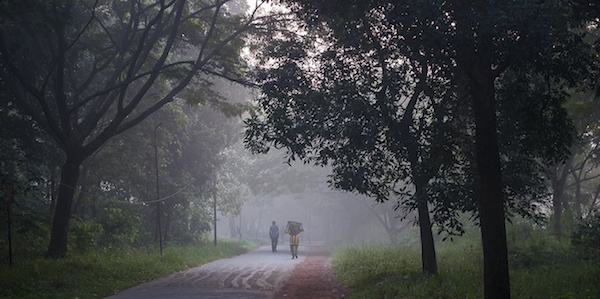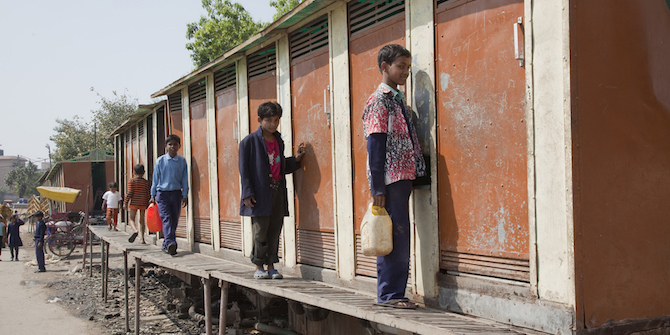Following its application to the UN to graduate out of its Least Developed Country Status, Saleemul Huq and David Lewis suggest a new future for UK-Bangladesh relations once Bangladesh achieves this in 2021.
Ever since Bangladesh became an independent country in December 1971 the United Kingdom has been a major development partner. For the UK’s Department for International Development (DFID) its bilateral aid programme, most of it in the form of grants, has been hundreds of millions of Pounds each year and Bangladesh has regularly been one of the biggest recipients of Official Development Assistance (ODA) from the UK.
Bangladesh has traditionally been a member of the group of Least Developed Countries (LDC) which is a formal grouping of nearly fifty of the poorest countries, mostly in Africa but a few in Asia, who are eligible for receiving ODA in the form of either outright grants or low interest loans.
However, in recent years Bangladesh has managed to grow steadily and hence the government of Bangladesh has recently formally applied to the UN to request that it be allowed to graduate out of LDC status.
The process of graduation is a formal one involving two three-year periods of successfully meeting the growth and other criteria in order to officially graduate. It became a lower middle income country in March 2018. Thus if all goes well then by 2021 Bangladesh will formally graduate from LDC to full middle income status and will then no longer be eligible for grants under ODA from developed countries including the UK.
As a result of this, the traditional bilateral donor countries, including the UK, are each reviewing their future relationship with Bangladesh.
It is in this context that we would like to share some thoughts on what would be a productive way forward for UK assistance to Bangladesh that builds on the long history of Bangladesh-UK relations.

Jahangirnagar University campus, Bangladesh. Photo credit: Ronnie Khan, Flickr, CC BY 2.0.
We note that over the decades many Bangladeshi students have gone to the UK for higher studies and there have also been numerous collaborative research programmes between researchers and university Faculty, such as a recent Sussex/Jahangirnagar project on mining, livelihoods and social networks or Cambridge’s project on lifestyle diseases, environment, and public health in collaboration with ICDDRB and other research institutions. We believe that this represents an important and unique foundation of accumulated joint learning between the UK and Bangladesh that can be built upon to support a new era of cooperation between the two countries.
However, our conception of this new era would be more than the UK providing scholarships for Masters and PhD students, but rather to develop joint research programmes on globally important topics where the learning would be a two way, rather than one way, process. This model of exchange rather than knowledge transfer is also far more in keeping with the SDGs, which apply to all countries, and not just to the Global South.
One such globally important issue is tackling climate change where the UK has experience in mitigation technologies while Bangladesh has developed expertise and experience in Adaptation. For example, a UK Collaborative on Development Sciences (UK-CDS) visit in 2010 demonstrated the potential of such an approach in relation to climate science.
Another area would be the general of field of development including such areas as social enterprise, civil society capacity, and digital citizenship.
In recent years, after the Government of Bangladesh allowed Universities to be set up in the private sector. There has been a mushrooming of such Universities such that Bangladesh now has over a hundred Universities counting both public and private ones.
While there is still a long way to go in ensuring quality of faculty and teaching in many of them, they nevertheless represent a massive institutional and human set of basic resources that can be invested for both national as well as global public goods.
Hence our proposition is for the UK to invest a significant amount of funding in future toward funding joint collaborative research between academic and research institutions in both countries.
This article gives the views of the author, and not the position of the South Asia @ LSE blog, nor of the London School of Economics. Please read our comments policy before posting.
This article was re-published with permission and originally published on the LSE International Development Blog. It can be accessed here.
About the Authors
Saleemul Huq (@SaleemulHuq) is Director, International Centre for Climate Change and Development at the Independent, University, Bangladesh and Senior Fellow, International Institute for Environment and Development (IIED) based in London.
 David Lewis is professor of Social Policy and Development at the London School of Economics and a member of the faculty advisory group of the LSE South Asia Centre, which organised the first ever LSE-UC Berkley Bangladesh Summit on 5 June 2018. David is also regular contributor to the South Asia @ LSE blog. View more of his posts here.
David Lewis is professor of Social Policy and Development at the London School of Economics and a member of the faculty advisory group of the LSE South Asia Centre, which organised the first ever LSE-UC Berkley Bangladesh Summit on 5 June 2018. David is also regular contributor to the South Asia @ LSE blog. View more of his posts here.








Your style is very unique in comparison to other people I’ve read stuff from.
Many thanks for posting when you’ve got the opportunity, Guess I’ll
just bookmark this web site.